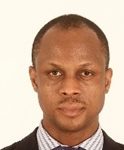Do we really need more skilled health workers in a world of Artificial Intelligence and digital health ? Discusses Kenneth Yakubu
As at 2013, the world was in need of 7.2 million health workers and this shortage is projected to increase to 12.9 million by 2035. This number captures only the need for skilled health workers (i.e. doctors, nurses and midwives). At a time when there is an increasing shortage in the global skilled health workforce, some might ask if we really need skilled health workers, others think we do.
It takes about four years to train as a midwife, an average of four years to train as a dentist and between four to seven years as a medical doctor. For the medical doctor, it takes another five to six years to complete a specialist training in surgery, and anything between three and four years to train a family doctor. Considering the cost and time needed to complete training, there is emerging evidence that supports the transfer of more responsibilities from skilled health workers (SHWs) to other types of health workers (e.g. assistant medical officers) who train for shorter periods of time, and achieve equivalent health outcomes.
Beyond training other types of health workers, artificial intelligence (AI) is increasingly changing the way medicine is practised. It has been suggested that AI can reduce our need for SHWs. The internet also provides people with options for self-diagnosis, and considering the challenge with access to health care, more people have come to rely on Google for the health information they need. Are we then justified to request for training of more SHWs? Is it even reasonable to request for an equitable distribution of SHWs within countries and across the globe? There are no easy answers to these questions. Asking what value do SHWs bring to the health system and the communities they serve is a good starting point.
Health workers in general are suited to varying health needs in the community. While there are health needs that require routine services and less tasking skills; others require complex skills. The complexity of needs therefore accounts for the varying types of health workers that are needed. Compared to other types of health workers, SHWs spend more time training because of the complexity of health needs they have to deal with. Does this diminish the value of other types of health workers with a shorter duration of training? On the contrary. Even if the services they provide may be described as simple or routine (e.g. health education, drug refills, home visits etc.), they are essential and serve to nurture people back to health. While it may make economic sense to invest more in AI , the aim should not be to replace SHWs. Rather, the call should be for a team-based approach with SHWs providing clinical leadership (e.g. using IT and strategic home visits, a family doctor can provide clinical supervision to a team of up to 15 community health workers who triage care for the simple health needs, and refer others appropriately). This way, the SHW’s skill is used effectively, and multiplied across 15 other health workers. Considering that even AI has potential for bias in its processes, there remains the need for human oversight and AI auditing, reiterating the need for innovative team based approaches to health care delivery.
Do we really need more skilled health workers? Yes, but we have to be creative in expanding the health workforce. We should train other types of health officers and use more AI in our work processes, but we should not discard the oversight and quality assurance that SHWs provide.
About the Author:
 Dr Kenneth Yakubu is a family physician with experience in patient, family and community-oriented health care. He is studying for a PhD at the University of New South Wales and The George Institute for Global Health. His current research seeks to explore challenges and solutions for achieving a sustainable global health workforce.
Dr Kenneth Yakubu is a family physician with experience in patient, family and community-oriented health care. He is studying for a PhD at the University of New South Wales and The George Institute for Global Health. His current research seeks to explore challenges and solutions for achieving a sustainable global health workforce.
Competing interests:
I have read and understood BMJ policy on declaration of interests and declare that I have no relevant conflicts of interests to declare.